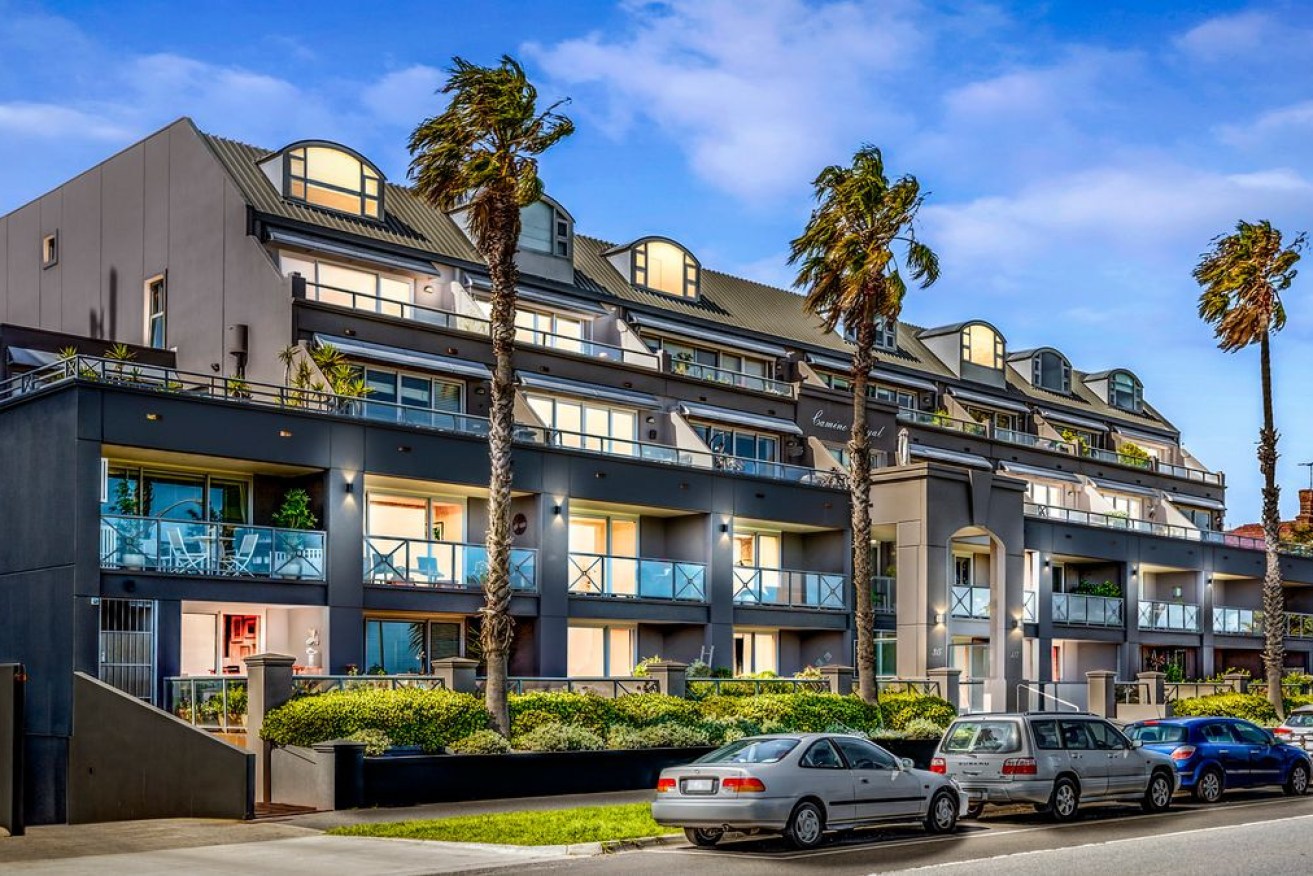Auction markets continue to struggle after recording worst result since 2008


Melbourne's most expensive sale was an apartment in St Kilda West. Photo: Hocking Stuart/Belle Property
Almost one in two homes (45 per cent) were withdrawn from sale this week as the coronavirus continued to weigh on activity.
The majority of sales were conducted privately as vendors shunned the world of online auctions – and fewer than half of the sales captured by CoreLogic were successful.
The preliminary clearance rate across the capital cities subsequently came in at 48 per cent, according to the property analytics firm.
But that number will likely be revised down in the coming days as more results and withdrawals are accounted for.
Last week, the preliminary clearance rate of 51.4 per cent was later revised down to 37.3 per cent – the lowest final clearance rate since CoreLogic began keeping records in 2008.
The worst result on record came after Prime Minister Scott Morrison temporarily banned on-site and in-room auctions, forcing real estate agents across the country to move online.
On Saturday, 1118 auctions were scheduled in Melbourne.
Of the 475 results captured, 266 ended in sales.
This gave the city a preliminary clearance rate of 56 per cent for the day, compared with 54.7 per cent for the week.
The majority were sold before auction (241 homes) or withdrawn from sale (182).
Only 24 homes were sold during a virtual auction, with one sold after the event and 25 passed in.

This apartment in St Kilda West sold for $1,337,000. Photo: Hocking Stuart/Belle Property
(The city’s most expensive sale was a three-bedroom, two-bathroom apartment in St Kilda West, which sold for a reported $1,337,000.)
Sydney was no different.
Of the 1104 auctions scheduled for Saturday, CoreLogic captured 740 results and fewer than half were successful.
The preliminary clearance rate for the day was 47.7 per cent, compared with 46.9 per cent for the week.
The majority of captured results were withdrawn from sale (333 homes) or sold prior to auction (299).
Only 51 homes were sold during a virtual auction, with three sold after the event and 45 passed in.
(The city’s most expensive sale was a five-bedroom, three-bathroom house in Constitution Hill, which reportedly sold via live-stream auction for $1,600,000.)
“As we noted last week the number of auction results collected at a preliminary stage are lower than usual as we seek to confirm the status of scheduled auctions,” CoreLogic auction commentator Kevin Brogan wrote in a note.
“However, as remaining results are collected, we expect the number of withdrawn auctions to rise and the final clearance rate to adjust lower.”
The weak results come after a period of strength for the housing market.
Buoyed by a series of interest rate cuts and looser bank lending, national property prices stabilised in July before clawing back almost all of the value they lost in the previous downturn.

Sydney’s most expensive confirmed sale was a five-bedroom home in Constitution Hill.
Analysts were subsequently expecting double-digit annual growth before the onset of COVID-19.
But some economists now believe the virus could trigger a large enough rise in unemployment to slash prices by up to 20 per cent.
Economists at UBS investment bank on Wednesday said the auction ban would cause the number of sales to more than halve over the near term.
“We also revise our forecast for home prices to start falling, given the hit to demand from the looming sharp recession and spike in unemployment,” they wrote in a note.
“The extent and duration of prices falls is very uncertain, but lenders offering deferred mortgage repayments (for six months) is critical in helping to minimise ‘forced selling’.”
They added that the government would likely step in if price falls became “significant”.
“The potential policy options include expanding/extending the First Home Buyer Scheme to help overcome the ‘deposit gap’, cash payments for home purchases (i.e. the First Home Owners Grant, albeit we think it should be for new homes only), temporary reductions in state government charges, especially stamp duty and land tax; or support to create a build-to-rent industry.”








